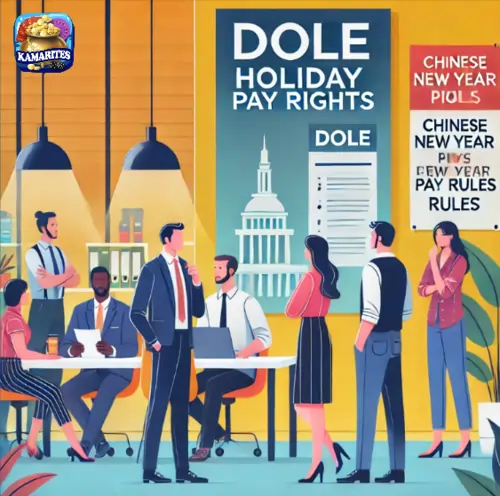
In a world where social media can amplify both good and bad actions in an instant, the incident involving an SM Megamall guard and a Sampaguita vendor quickly became a viral sensation.
The video, which showed the guard confronting the vendor, led to widespread discussions about corporate responsibility, employee behavior, and the power of public outcry. As a response to the situation, SM Megamall took swift action, terminating the guard involved.
The Viral Video: What Happened at SM Megamall?
On a seemingly ordinary day at SM Megamall, a confrontation between a security guard and a Sampaguita vendor was caught on camera. The video showed the vendor trying to sell flowers to passersby, but the guard reportedly acted aggressively, asking her to leave the premises. The video quickly gained traction online, sparking outrage among Filipinos who felt the situation was unjust.
Why did it go viral?
Social media has become an undeniable force in bringing attention to social issues. This incident was no different. As the video spread, viewers voiced their frustration over the guard’s actions and the mall’s lack of immediate response. It was clear that the public wanted accountability, and the story took off—quickly becoming one of the top trending topics on various platforms.

SM Megamall’s Response: Accountability in Action
In a move that garnered both praise and skepticism, SM Megamall decided to terminate the guard involved in the incident.
While this swift action may seem like the right step, it’s essential to look at what this means for the mall and its future approach to handling similar issues.
The Importance of Corporate Accountability
SM Megamall’s decision to act quickly reflects the growing pressure on businesses to be more transparent and responsive to public concerns. Companies today are expected to uphold standards not just in terms of customer service, but in ensuring that employees act ethically and respectfully. This action serves as an example of how businesses must take responsibility when their staff members fall short of these standards.
However, the real question is whether this termination will lead to real change within the company or if it’s simply a reaction to avoid further damage to the brand’s image. Only time will tell whether SM Megamall implements long-term strategies to ensure that such incidents are prevented in the future.

The Public’s Reaction: A Mixed Bag of Opinions
While some applauded SM Megamall for taking action, others questioned whether the termination of a single employee was enough to address the broader issue of vendor treatment in malls.
Many Filipinos expressed concerns that incidents like these were part of a larger, systemic problem—one that could not be solved by firing an individual.
A Call for Deeper Change
For Maria Santos a young professional and avid social media user, it wasn’t just about one incident. “I just wish businesses would have policies in place to prevent these situations from even happening in the first place,” she said. “It’s good that they fired the guard, but what about other employees? And what about the vendor’s dignity?”
Maria’s sentiments echo the frustrations many feel today: they don’t want to see incidents like this get swept under the rug. They want to see long-term solutions, including better training for employees, improved vendor policies, and, perhaps most importantly, a shift in corporate culture.
The Role of Social Media: The Power to Influence Change
The viral nature of this video shows the immense power social media holds in shaping public opinion. Platforms like Facebook, Twitter, and TikTok have become the primary channels through which the public holds businesses accountable. The public outcry was immediate, with people from all over the country voicing their displeasure and calling for action.
Why Does Social Media Matter?
Social media not only amplifies individual voices but also serves as a tool for creating awareness around important issues. This incident, like many others, was propelled to national attention because of how quickly it spread across digital platforms.
The ability of ordinary citizens to initiate conversations that influence corporate decisions is one of the most remarkable aspects of social media today.
Moving Forward: What Can Other Malls Learn from This Incident?

SM Megamall’s decision to terminate the guard sets a precedent for how businesses should handle incidents that go viral. But it also opens up an important conversation: What steps should other malls take to avoid similar situations in the future? While it’s important for companies to respond to individual incidents, it’s even more critical to focus on proactive measures.
What Steps Can Be Taken?
- Employee Training and Awareness: Security personnel and other employees should undergo regular training on how to interact with vendors and customers in a respectful manner.
- Clear Policies for Vendors: Malls should ensure that there are clear, fair, and transparent policies that protect the rights of vendors while maintaining order within the premises.
- Swift Response to Public Outcry: When issues arise, malls need to act quickly—not just to avoid damage to their reputation but to show that they value fairness and justice.
- Listening to the Community: Companies should listen to their customers and the public. If people feel that something is wrong, it’s crucial for businesses to take that feedback seriously and make changes where necessary.
If you’re a regular shopper at SM Megamall or any other mall, it’s important to be aware of how incidents like this can impact both the businesses we support and the vendors who rely on these spaces to earn a living.
Share your thoughts and experiences—whether positive or negative—with brands and encourage them to be more transparent, fair, and proactive in ensuring that such incidents don’t happen again.
Let’s make sure that every voice counts, both online and offline.
Disclaimer:
The information provided in this article is based on public sources and may change over time. Always verify with the relevant authorities or directly with the involved parties.








